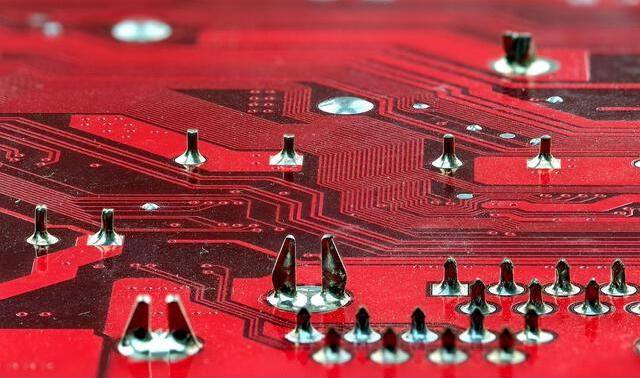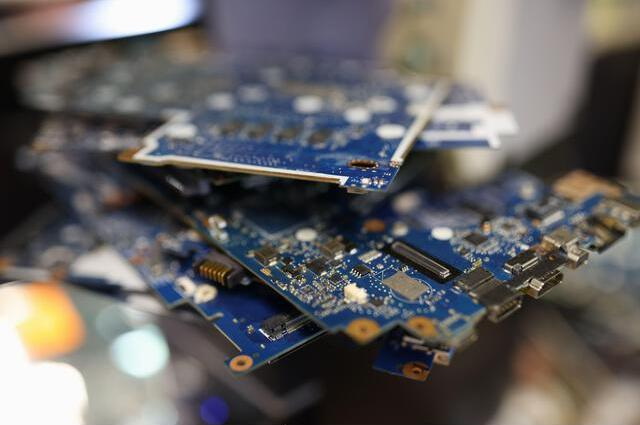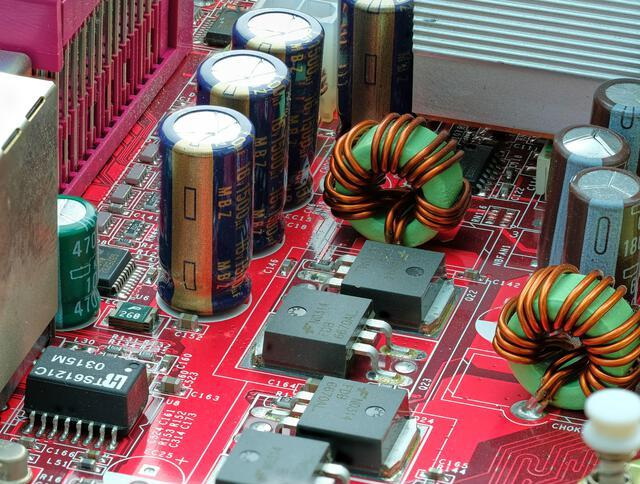Content Menu
● Understanding SMT Stencil Laser Cutting Machines
>> What is SMT?
>> The Role of Stencils in SMT
>> What is Laser Cutting?
● Cost Benefits of SMT Stencil Laser Cutting Machines
>> 1. Increased Production Efficiency
>> 2. High Precision and Quality
>> 3. Reduced Material Waste
>> 4. Flexibility and Customization
>> 5. Lower Labor Costs
>> 6. Long-Term Cost Savings
● Factors Influencing SMT Stencil Laser Cutting Machine Price
>> 1. Machine Specifications
>> 2. Brand and Manufacturer
>> 3. Additional Features
>> 4. Maintenance and Support
>> 5. Market Demand
● Latest Advancements in SMT Stencil Laser Cutting Technology
>> 1. Enhanced Laser Technology
>> 2. Automation and Robotics
>> 3. Advanced Software Solutions
>> 4. Improved Material Handling
>> 5. Eco-Friendly Solutions
● How Precision Affects Solder Paste Deposition
>> 1. Improved Component Placement
>> 2. Enhanced Reliability
>> 3. Reduced Rework and Scrap Rates
>> 4. Higher Production Yields
● Key Factors to Consider When Choosing an SMT Stencil Laser Cutting Machine
>> 1. Cutting Speed and Precision
>> 2. Material Compatibility
>> 3. Ease of Use
>> 4. Support and Maintenance
>> 5. Cost of Ownership
● Conclusion
● FAQ
>> 1. What is the average price of SMT stencil laser cutting machines?
>> 2. How do SMT stencil laser cutting machines improve production efficiency?
>> 3. What materials can be used with SMT stencil laser cutting machines?
>> 4. Are there any maintenance costs associated with SMT stencil laser cutting machines?
>> 5. Can SMT stencil laser cutting machines produce custom stencils?
In the world of electronics manufacturing, the demand for precision and efficiency is paramount. One of the key technologies that have emerged to meet these demands is the SMT (Surface Mount Technology) stencil laser cutting machine. These machines are designed to create stencils used in the solder paste application process, which is critical for assembling electronic components onto printed circuit boards (PCBs). In this article, we will explore the cost benefits of using SMT stencil laser cutting machines, including their impact on production efficiency, quality, and overall cost savings.

Understanding SMT Stencil Laser Cutting Machines
What is SMT?
Surface Mount Technology (SMT) is a method used to mount electronic components directly onto the surface of PCBs. This technology has revolutionized the electronics industry by allowing for smaller, lighter, and more efficient devices. SMT components are typically smaller than their through-hole counterparts, enabling higher component density on PCBs.
The Role of Stencils in SMT
Stencils are essential in the SMT process as they are used to apply solder paste to the PCB pads where components will be placed. The accuracy and quality of the stencil directly affect the soldering process, which in turn impacts the reliability and performance of the final product. Traditional methods of stencil production, such as chemical etching, can be time-consuming and may not provide the precision required for modern electronics.
What is Laser Cutting?
Laser cutting is a technology that uses a high-powered laser beam to cut materials with precision. In the context of SMT, laser cutting machines are used to create stencils from thin sheets of metal, typically stainless steel or nickel. The laser cutting process allows for intricate designs and high accuracy, which are crucial for the SMT process.
Cost Benefits of SMT Stencil Laser Cutting Machines
1. Increased Production Efficiency
One of the primary cost benefits of using SMT stencil laser cutting machines is the significant increase in production efficiency. Traditional stencil manufacturing methods can take several days to complete, whereas laser cutting machines can produce stencils in a matter of hours. This rapid turnaround time allows manufacturers to respond quickly to market demands and reduces lead times for production.
2. High Precision and Quality
Laser cutting machines offer unparalleled precision compared to traditional methods. The ability to create stencils with tight tolerances ensures that solder paste is applied accurately, reducing the risk of defects during the soldering process. High-quality stencils lead to fewer rework and scrap rates, ultimately saving costs associated with defective products.
3. Reduced Material Waste
Laser cutting is a highly efficient process that minimizes material waste. Traditional stencil manufacturing often involves significant waste due to the chemical etching process, which removes material to create the stencil design. In contrast, laser cutting only removes the material that is necessary, leading to lower material costs and reduced environmental impact.
4. Flexibility and Customization
SMT stencil laser cutting machines provide manufacturers with the flexibility to create custom stencils for specific projects. This capability allows for quick adjustments to stencil designs without the need for extensive retooling or setup changes. The ability to produce custom stencils on demand can lead to cost savings by eliminating the need for large inventory levels of standard stencils.
5. Lower Labor Costs
The automation of the stencil cutting process reduces the need for manual labor, which can significantly lower labor costs. SMT stencil laser cutting machines can operate with minimal human intervention, allowing skilled workers to focus on more complex tasks within the production process. This shift not only reduces labor costs but also enhances overall productivity.
6. Long-Term Cost Savings
While the initial investment in SMT stencil laser cutting machines may be higher than traditional methods, the long-term cost savings can be substantial. The combination of increased efficiency, reduced waste, and lower labor costs contributes to a favorable return on investment (ROI). Manufacturers can expect to see significant savings over time as they streamline their production processes.

Factors Influencing SMT Stencil Laser Cutting Machine Price
When considering the purchase of an SMT stencil laser cutting machine, several factors can influence the price:
1. Machine Specifications
The specifications of the laser cutting machine, including its cutting speed, precision, and the types of materials it can handle, will significantly impact the price. Higher-end machines with advanced features will typically come at a premium.
2. Brand and Manufacturer
The reputation of the manufacturer can also affect the price. Established brands with a track record of reliability and performance may charge more for their machines compared to lesser-known brands.
3. Additional Features
Many SMT stencil laser cutting machines come with additional features such as automated loading and unloading, advanced software for design and cutting, and integrated quality control systems. These features can enhance productivity but may also increase the overall cost.
4. Maintenance and Support
Consideration should also be given to the maintenance and support services offered by the manufacturer. Machines that come with comprehensive support packages may have a higher upfront cost but can save money in the long run through reduced downtime and maintenance expenses.
5. Market Demand
Finally, market demand can influence the price of SMT stencil laser cutting machines. As the electronics industry continues to grow, the demand for high-quality stencils will increase, potentially driving up prices.
Latest Advancements in SMT Stencil Laser Cutting Technology
The field of SMT stencil laser cutting technology is continuously evolving, with several advancements enhancing the capabilities and efficiency of these machines. Some of the latest advancements include:
1. Enhanced Laser Technology
Recent developments in laser technology have led to more powerful and efficient lasers that can cut through thicker materials with greater precision. This advancement allows manufacturers to create stencils that can handle a wider range of applications and materials.
2. Automation and Robotics
The integration of automation and robotics into SMT stencil laser cutting machines has streamlined the production process. Automated loading and unloading systems reduce manual handling, further increasing efficiency and reducing the risk of human error.
3. Advanced Software Solutions
Modern SMT stencil laser cutting machines are equipped with sophisticated software that allows for easy design modifications and real-time monitoring of the cutting process. This software can optimize cutting paths and reduce production time, leading to further cost savings.
4. Improved Material Handling
Advancements in material handling systems have made it easier to manage the input and output of materials in the laser cutting process. This improvement minimizes downtime and enhances overall productivity.
5. Eco-Friendly Solutions
With increasing awareness of environmental issues, many manufacturers are focusing on developing eco-friendly SMT stencil laser cutting machines. These machines are designed to minimize energy consumption and reduce waste, aligning with global sustainability goals.
How Precision Affects Solder Paste Deposition
The precision of laser-cut stencils plays a crucial role in the solder paste deposition process. High precision ensures that the solder paste is applied accurately to the PCB pads, which is essential for the following reasons:
1. Improved Component Placement
Accurate solder paste deposition allows for better alignment of components during the placement process. This alignment is critical for ensuring that components are securely attached to the PCB, reducing the likelihood of defects.
2. Enhanced Reliability
Precision in solder paste application leads to consistent solder joints, which are vital for the reliability of electronic devices. Poor solder joints can result in failures, leading to increased warranty claims and repair costs.
3. Reduced Rework and Scrap Rates
When solder paste is applied accurately, the need for rework is minimized. This reduction in rework not only saves time but also decreases material costs associated with scrapped PCBs.
4. Higher Production Yields
High precision in solder paste deposition contributes to higher production yields. Manufacturers can produce more functional PCBs in a shorter amount of time, enhancing overall profitability.
Key Factors to Consider When Choosing an SMT Stencil Laser Cutting Machine
When selecting an SMT stencil laser cutting machine, manufacturers should consider several key factors to ensure they make the best investment:
1. Cutting Speed and Precision
Evaluate the cutting speed and precision of the machine. Faster cutting speeds can lead to increased productivity, while high precision is essential for quality stencils.
2. Material Compatibility
Ensure that the machine can handle the materials you plan to use for stencil production. Different materials may require specific cutting techniques or laser types.
3. Ease of Use
Consider the user interface and software capabilities of the machine. A user-friendly interface can reduce training time and improve overall efficiency.
4. Support and Maintenance
Investigate the support and maintenance options provided by the manufacturer. Reliable support can minimize downtime and ensure that the machine operates at peak performance.
5. Cost of Ownership
Assess the total cost of ownership, including initial purchase price, maintenance costs, and potential savings from increased efficiency and reduced waste.
Conclusion
In conclusion, SMT stencil laser cutting machines offer numerous cost benefits that can significantly enhance the efficiency and quality of electronics manufacturing. From increased production efficiency and high precision to reduced material waste and lower labor costs, these machines represent a valuable investment for manufacturers looking to stay competitive in a rapidly evolving market. While the initial cost may be higher than traditional methods, the long-term savings and benefits make SMT stencil laser cutting machines a wise choice for modern electronics production.

FAQ
1. What is the average price of SMT stencil laser cutting machines?
The price of SMT stencil laser cutting machines can vary widely based on specifications and features, typically ranging from $20,000 to $100,000 or more.
2. How do SMT stencil laser cutting machines improve production efficiency?
These machines reduce the time required to produce stencils, allowing for faster turnaround times and increased production rates.
3. What materials can be used with SMT stencil laser cutting machines?
Common materials include stainless steel and nickel, which are ideal for creating durable and precise stencils.
4. Are there any maintenance costs associated with SMT stencil laser cutting machines?
Yes, regular maintenance is required to ensure optimal performance, and costs can vary based on the machine and usage.
5. Can SMT stencil laser cutting machines produce custom stencils?
Yes, these machines are highly flexible and can produce custom stencils tailored to specific project requirements.




















